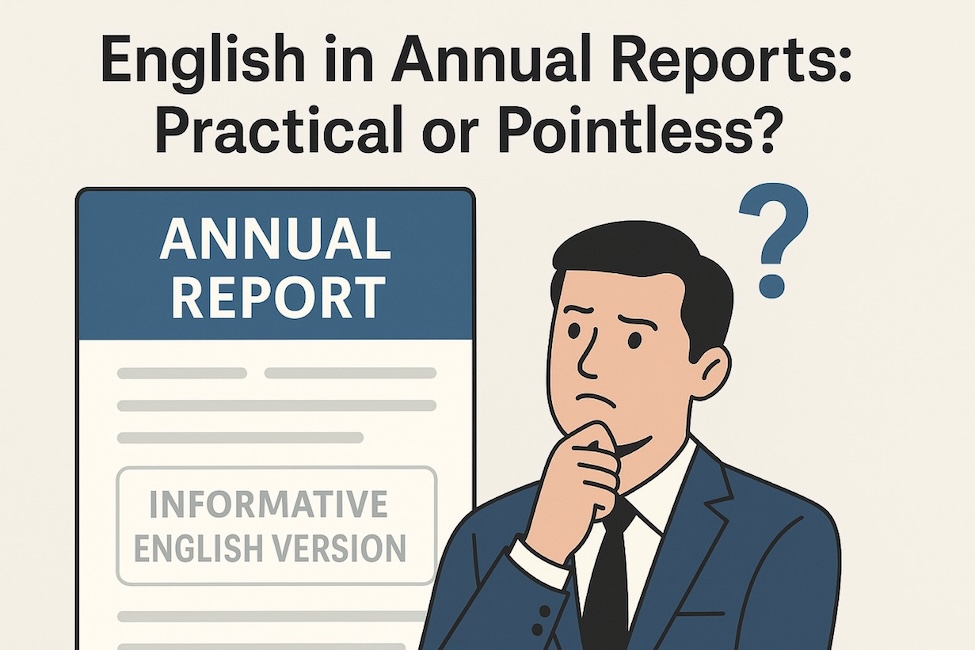In today’s global business environment, English often serves as the default language of communication — especially in finance and international reporting. But what happens when your official documents, like annual reports, are prepared in a country where English has no legal status?
This question is particularly relevant for businesses operating in countries that attract foreign investment, yet maintain local-language legal systems.
Should companies invest time and resources into preparing English versions of their annual reports? Is it practical or pointless?
Case Study: Commercial register of Estonia
When filing annual reports through Estonia’s commercial register, companies often encounter the option to "Compile the annual report also in English." On the surface, this seems practical — add an English version for convenience, and make it look more accessible for partners.
But here’s what’s actually happening behind the scenes:
- When you check the “also in English” box, the system allows you to complete forms in both Estonian and English.
- However, only the Estonian version is officially submitted and digitally signed.
- The English version includes a disclaimer in the header:
“The report in English is only informative — it is not signed in the system and is not submitted to the register.”.
This means the English version has no legal force. It simply sits in the system as an informal translation — useful for reference, but without any official status.
A Smarter Alternative: Avoiding Double Work
Instead of completing the report twice (once in Estonian and once in English) within the system, a more efficient approach would be:
- First, generate the official Estonian PDF and sign it;
- Then, translate the final report into English using a professional translator — or a reliable AI tool like DeepL (which handles financial texts well);
- If needed for formal submission abroad, have the English version certified with a sworn translation, notarization, or an apostille.
When Is an English Version Truly Needed?
An English version becomes essential when:
- Sending reports to a foreign investor, bank, or venture capital fund;
- Reporting to a foreign parent company or international holding;
- Submitting documents to a foreign regulatory body or jurisdiction.
In such cases, the unofficial “informative” version provided by the commercial register is not sufficient. A proper, high-quality translation of the final signed report is far more useful and credible.
Final Thoughts
Adding an English version directly in the commercial register may seem helpful, but in reality, it’s extra effort with no legal benefit.
A more effective approach:
- Prepare the official report in Estonian first →
- Then translate the signed version into English only if necessary.
This saves time, avoids confusion, and provides a translation that actually serves your international communication needs — clearly, accurately, and professionally.

